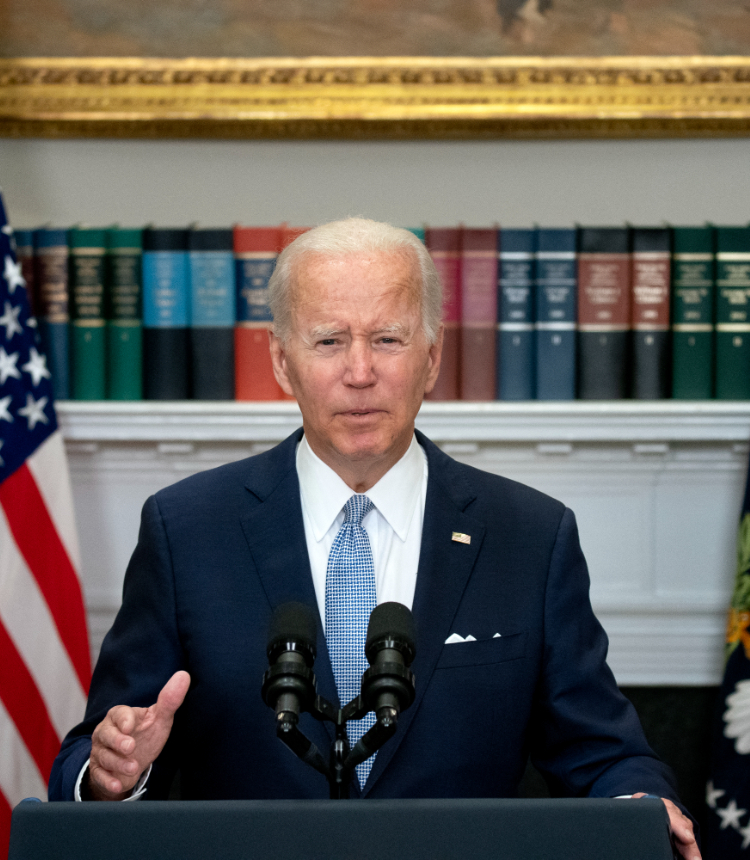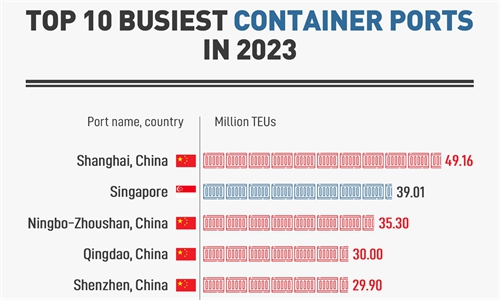
US President Joe Biden on June 25, 2022, signs into law the first major gun safety legislation passed by Congress in nearly three decades, days after the Supreme Court struck down a NY law restricting concealed carry. Photo:AFP
US President Biden is expected to sign the "All-American Flag Act" on August 1, requiring US government-purchased flags to be made domestically, ABC News reported on Tuesday. However, insiders suggest that the US may still opt for Chinese-made flags due to the higher cost of domestic manufacturing.
The US congress has passed a bill to require the federal government to purchase national flags that have been completely manufactured in the US, while millions of the imported US flags are mostly from China. The bill was introduced to the congress on July 14 by the US Senator Sherrod Brown and required the US federal government to only buy American flags produced and manufactured in the US.
Supporters of the bill said that they expect it to be signed into law soon. They noted that the US imported approximately 10 million American flags in 2017, with 99.5 percent of them coming from China, ABC News reported on Tuesday.
They believe the change is more than just symbolic as it will support American jobs and manufacturers while preserving the nation's most recognized banner, according to the ABC News.
A significant number of American flags were made in China, primarily in East China’s Zhejiang Province and such a proposal is a typical example of American nationalism, experts said.
“The enactment of this bill showed that the US’ politics always ignores economic considerations, The politicians view economic issues only from the political perspectives, overlooking the costs their policies impose on businesses activities and harm the interests of the manufacturing sector,” Li Yong, a senior research fellow at the China Association of International Trade, told the Global Times on Tuesday.
“We manufacture the flags and banners for various countries and the US just takes a small market share. It won't influence us largely if the US bans the exports of their national flags made in China, ” He Bin, the head of Tian Gong Flags and Banners factory, a Yiwu-based exporter of the American flags, told the Global Times on Tuesday.
Yiwu's flags are of high reputation and cost effective in the world for years. It is more expensive for the US to produce the flags just by their own, He added.
Insiders in the relevant sectors told the Global Times that the manufacturing and labor costs in the US are much higher than in China, without the government’s subsidies, no consumers would likely choose to forgo the high-quality American flags at a cheaper price.
“Attempting 100 percent flag-making localization in the US will undoubtedly lead to higher costs unless the US has a more advanced supply chain than China,” Qian, a representative of another Zhengjiang-based flag export company, told the Global Times on Tuesday.
Qian said that the US would revert to procuring flags from China if the proposal made the companies cost more.
“If the US has a supply chain as complete as China's, our costs could be comparable, but they don't. We only focus on mid- to high-end products that other factories cannot produce,” a representative surnamed Zhou from Changzhou Jinling Weaving and Dyeing Co, a leading Chinese company exporting flags to the US, told the Global Times on Tuesday.
Economic bill driven by politics and ideology are inevitably harmful, ultimately damaging the interests of the American people, Li said.
“The benefits of strengthening China-US cooperation are obvious. Both China and the US should focus on win-win collaboration and stay committed to it,” Gao Lingyun, an expert at the Chinese Academy of Social Sciences, told the Global Times on Tuesday.
Global Times



